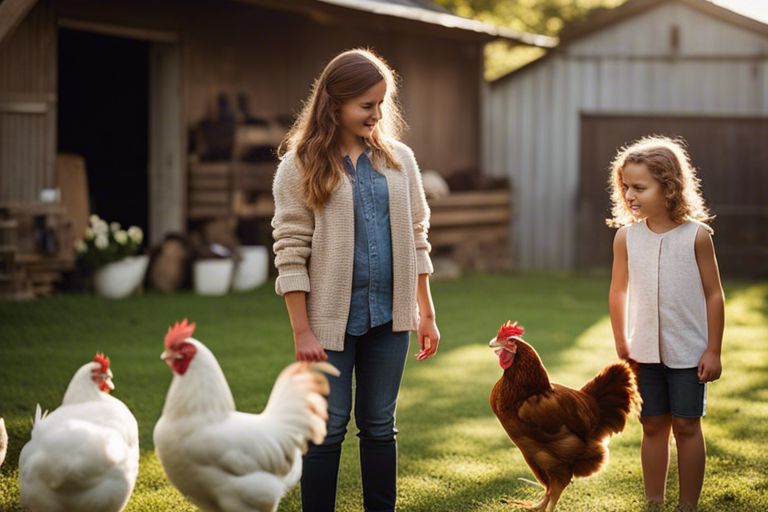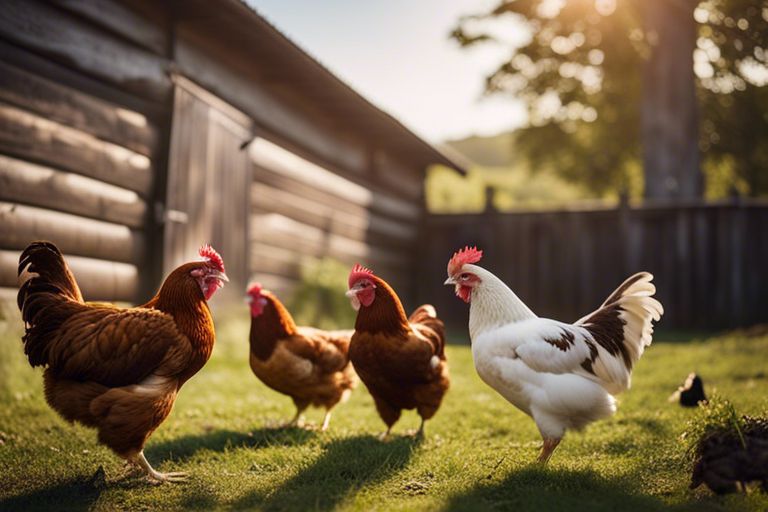There’s been a growing trend towards free-range chickens in recent years as consumers become more conscious of where their food comes from. With the promise of healthier, more humanely raised birds, free-range chickens are certainly appealing. But is the switch to free-range poultry worth it? Let’s investigate into the benefits of opting for free-range chickens and explore if the extra cost and effort are truly worth the rewards.
The Nutritional and Health Benefits of Free-Range Chickens
Comparison of Free-Range to Caged Chicken Nutrition
An important aspect of choosing free-range chickens over caged ones is the nutritional difference in the meat and eggs produced. Let’s research into a comparison of the nutritional content of free-range and caged chicken products:
| Free-Range Chickens | Caged Chickens |
| Higher in beneficial omega-3 fatty acids | Lower in beneficial omega-3 fatty acids |
| More vitamin E and beta-carotene due to varied diet | Less vitamin E and beta-carotene |
| Leaner meat with lower overall fat content | Fattier meat with higher fat content |
Health Impacts on Humans
To understand the health impacts of consuming free-range chicken products, it’s crucial to consider how it can affect human well-being. Research suggests that incorporating free-range chicken meat and eggs into your diet can lead to various health benefits, primarily attributed to the higher nutritional quality of free-range products.
For instance, free-range chicken products have been found to have higher levels of beneficial nutrients like omega-3 fatty acids, vitamin E, and beta-carotene, which are crucial for overall health and well-being. These nutrients not only contribute to better heart health but also support the immune system and enhance cognitive function.
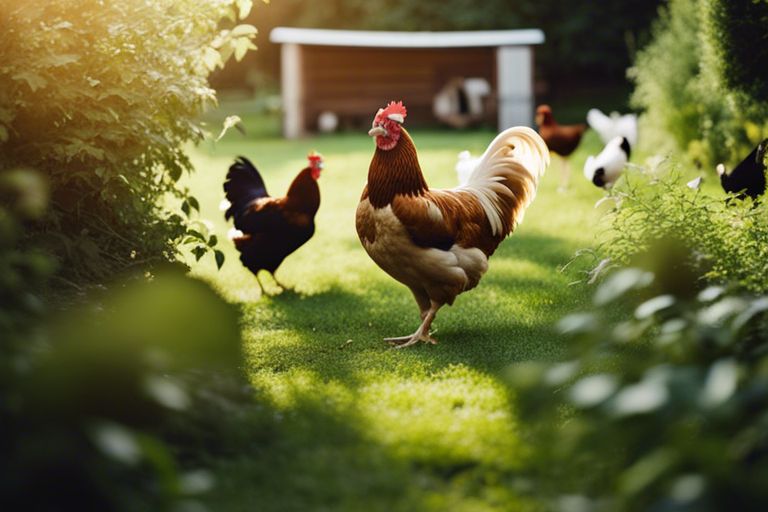
Environmental and Ethical Considerations
Impact on Ecosystems
Some studies have shown that free-range chicken farming can have a positive impact on ecosystems. By allowing chickens to roam freely and graze on grass, insects, and seeds, they can help in controlling pests and weeds naturally. Additionally, their manure enriches the soil, promoting healthier plant growth and enhancing biodiversity in the area.
Ethical Implications of Free-Range Farming
One of the main ethical implications of free-range farming is the improved welfare of the chickens. By giving them the freedom to express their natural behaviors, such as scratching the ground and dust bathing, free-range farming provides a more humane environment compared to intensive farming methods. This allows the chickens to lead a more fulfilling life before being processed for meat or eggs.
Understanding the ethical implications of free-range farming is necessary for consumers who want to make informed choices about the food they eat. Supporting free-range practices not only promotes animal welfare but also contributes to a more sustainable and environmentally friendly food system.
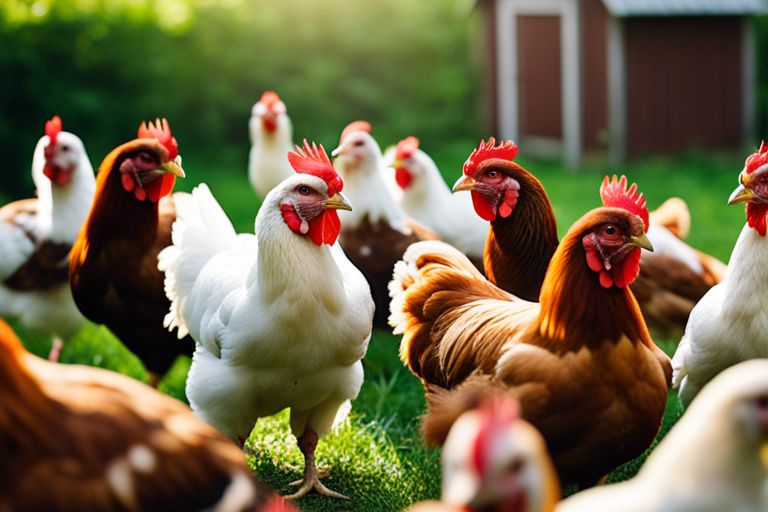
The Benefits Of Free-Range Chickens – Is It Worth It?
Cost analysis for Producers and Consumers
Your initial investment in transitioning to a free-range chicken operation may be higher due to the costs of providing more space, better living conditions, and higher quality feed for the chickens. However, in the long term, the benefits can outweigh the costs as free-range chickens often fetch a higher price in the market. Consumers are increasingly willing to pay a premium for products that are ethically produced, making free-range chicken a lucrative choice for producers.
Long-Term Financial Benefits
Producers who choose to raise free-range chickens can enjoy various long-term financial benefits. These can include reduced veterinary costs due to healthier chickens, increased demand for ethically produced products leading to higher selling prices, and enhanced brand reputation that can lead to customer loyalty and repeat business. Investing in free-range chicken production can be a wise financial decision for producers looking to differentiate themselves in the market.
Consumers benefit from knowing that the eggs or meat they are purchasing come from chickens that have been raised in more humane and ethical conditions. Although the initial cost may be slightly higher than conventional products, the quality, taste, and peace of mind that come with choosing free-range options make it a worthwhile investment for health-conscious and socially responsible consumers.
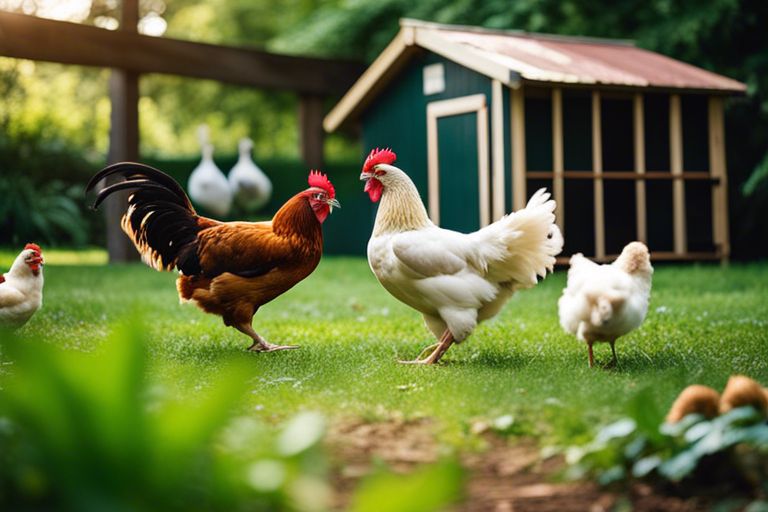
Challenges and Best Practices
Common Obstacles in Free-Range Chicken Farming
Practices in free-range chicken farming can come with its fair share of challenges. Predators such as foxes, hawks, and even neighborhood dogs pose a threat to the flock. Disease control becomes trickier in a free-range setting compared to conventional farming methods. Weather conditions, such as extreme heat or cold, can also affect the well-being of the chickens. All these factors can make it daunting for farmers to maintain a successful free-range operation.
Strategies for Success
Obstacles in free-range chicken farming can be mitigated with the right strategies in place. Fencing is crucial to protect the flock from predators, while also providing access to fresh pasture. Regular health checks and proper vaccination schedules are necessary to prevent disease outbreaks. Providing adequate shelter and shade can help chickens weather the elements. Additionally, rotational grazing practices can help maintain pasture quality and reduce the risk of parasites.
To ensure a successful free-range chicken operation, it is crucial to strike a balance between providing a natural environment for the chickens to thrive in, while also implementing sound management practices to address potential challenges. By staying proactive in predator control, health management, and environmental conditions, farmers can overcome obstacles and reap the benefits of raising free-range chickens.
Conclusion
The benefits of free-range chickens are certainly worth it for those looking to support animal welfare, improve the quality of their eggs and meat, and enjoy a more sustainable food source. By allowing chickens to roam freely outdoors, they lead healthier and happier lives, resulting in better-tasting and more nutritious products. While free-range products may come at a slightly higher cost, the positive impact on the environment and animal well-being is undeniable. Overall, the choice to go free-range is a step towards a more ethical and sustainable food system.
FAQ
Q: What are free-range chickens?
A: Free-range chickens are poultry that are allowed to roam freely outdoors, rather than being confined to cages or pens.
Q: What are the benefits of free-range chickens?
A: Free-range chickens have access to a more natural diet, exercise, and fresh air, which can result in healthier and more flavorful meat and eggs.
Q: Are free-range chickens worth the extra cost?
A: While free-range products may be more expensive than conventional options, many people believe that the benefits in terms of animal welfare, environmental sustainability, and taste make it worth the extra cost.
Q: Do free-range chickens have better living conditions?
A: Yes, free-range chickens typically have access to more space, fresh air, and natural light, which can lead to better living conditions compared to birds raised in confined spaces.
Q: Are there health benefits to consuming free-range eggs and poultry?
A: Some studies suggest that free-range eggs and poultry may contain higher levels of certain nutrients, such as Omega-3 fatty acids and vitamins, due to the birds’ more natural diet and exercise habits.
Q: How can I ensure that the free-range products I buy are truly free-range?
A: Look for certifications from reputable organizations, visit local farms to see their practices firsthand, or purchase products from trusted sources that have a track record of transparency in their sourcing.
Q: What impact do free-range chickens have on the environment?
A: Free-range farming practices can be more sustainable and environmentally friendly compared to intensive farming methods, as they often involve less use of chemicals, antibiotics, and artificial inputs.

